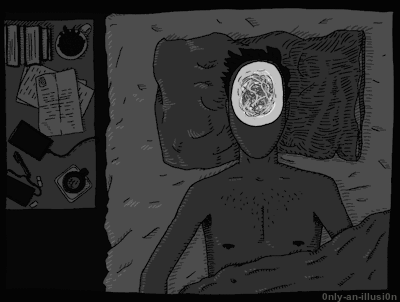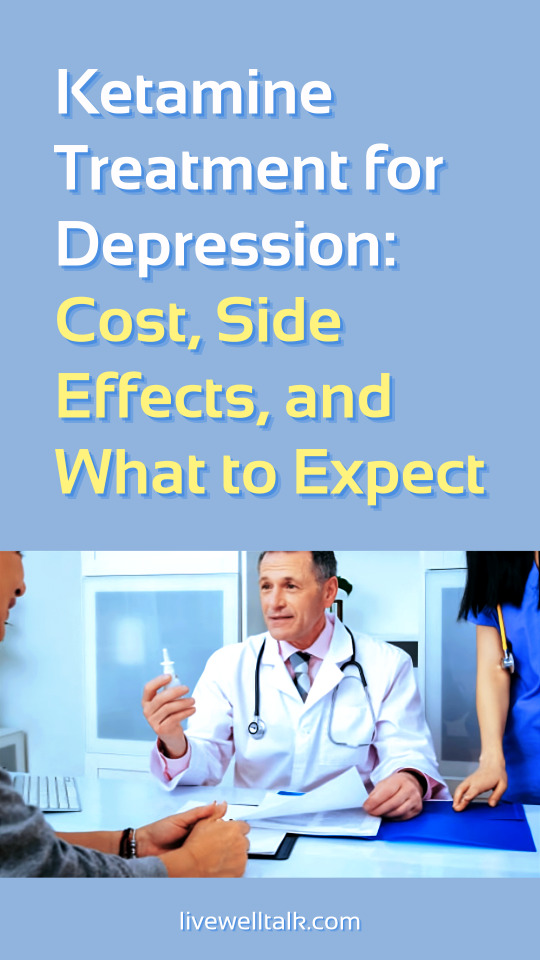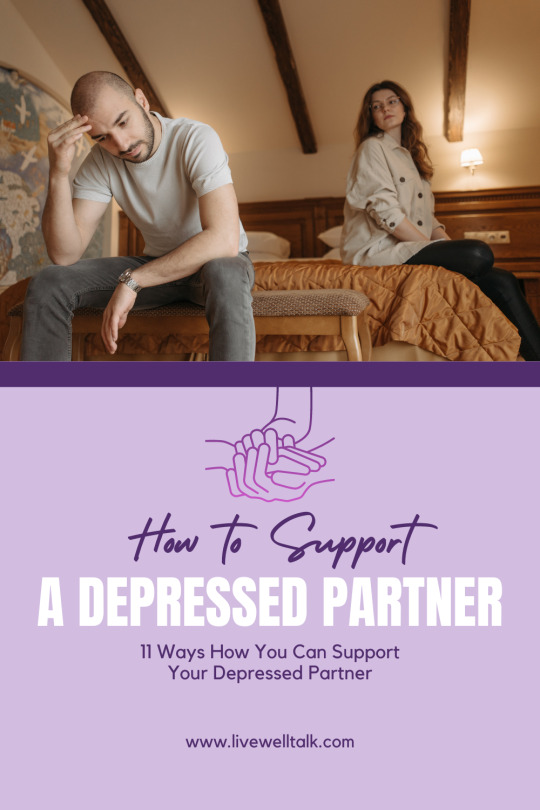#depression support
Text
Trying to stay positive but I need to find solutions for being productive despite the bouts of depression ...
More than just going outside.
Any advice?

#advice#despression#productivitytips#productivity techniques#depression and anxiety#depression advice#mental health support#mental health#depression stuff#depression support#motivation#motivation tips
10 notes
·
View notes
Text
Body Doubling: A strategy to combat depressive lethargy and ADHD executive dysfunction

A strategy where you have someone else around while doing a task you're troubling to get done. Sometimes the person is doing the same task other times they're just around.
#adhd tips#adhd struggles#depression struggles#depression support#executive dysfunction#mental health help#post#psychology#body doubling
6 notes
·
View notes
Text

Food is medicine. 🌱
#Health#Mental health#depression#anxiety#depression support#anxiety relief#food#diet#healthy#healthy living#healthy foods#brainhealth
2 notes
·
View notes
Text
the ghost of childhood depression
i have suffered from depression since the age of 6. i never envisioned myself making it to adulthood. with each passing year i proved myself, and my depression, wrong. i made it to 15, then 16, then 17. by 18 i (mostly) wanted to give life another try. i wanted to live for myself this time. i'm 19 now, and depression didn't make it easy. although the thoughts weren't as loud, when they were loud they were LOUD. depression is all i have ever known. i don't know how to live any other way. i have no sense of what it is like to live without it. its hard knowing what is depression and what is not. i find it hard to experience any other emotion other than sadness, grief, anger, or guilt. i have spent basically the entirety of my life watching others experience things that i never have and i found it unfair. i eventually came to the conclusion that the only thing stopping me from experiencing the "good" things others had was the thought that i couldn't. so, now i am on the quest to prove my depression wrong. i have no idea what my future looks like or the journey it will take to get there. for now i will learn to be patient with myself and have more compassion for myself. in the mean time i want to work through the hurt and the pain. it won't be easy, but i am willing to keep trying my hardest.
i hope you know that you can heal from whatever it is weighs on your soul. i hope you know how proud of you i am. i hope you never stop showing up for yourself, especially when things get tough. i hope you know you deserve everything good that comes your way.
#mental health#mental illness#clinical depression#major depressive disorder#childhood depression#depression support#mental heath support#writers on tumblr#writerslife
8 notes
·
View notes
Text

Ketamine is a drug that has been used as an anesthetic for decades. In recent years, it has been shown to be effective in treating depression. Ketamine can provide rapid relief of depression symptoms, and the effects are sustained with repeated doses.
Explore the world of ketamine treatment for depression with this comprehensive guide. Discover the cost, potential side effects, and what to expect during the treatment process. Ketamine has emerged as a promising alternative for individuals struggling with treatment-resistant depression. Uncover the facts, benefits, and considerations surrounding this innovative therapy.
Gain insights into the effectiveness of ketamine, its potential risks, and how it may provide relief for those seeking an alternative approach to manage their depression. Check out → Ketamine Treatment for Depression: Cost, Side Effects, and What to Expect
#depression support#depression awareness#depression treatment#treatment resistant depression#ketamine#ketamine therapy#ketamine treatment#mental health awareness#mental health care#mental health support#mental health issues#mental illness#depression help#alternative treatment#trd#LiveWellTalk#mental health
4 notes
·
View notes
Text
Things I've been told when people go into my room to get me out of my depression:
"Your mother is very ill, and I think you should know that"
"(Long rant about all things the person has overcome)... and despite all that, I keep going! You need to keep going no matter what!"
"You have to shake it off!"
"Life sucks, but we get over things and keep going"
"I'm sorry you haven't got everything you wanted. I did everything I could"
Things I've never been told when people go into my room to get me out of my depression:
"I'm here for you. I'm sorry you feel that way"
"I know what you're going through is tough. I'm sorry"
"I'm here to support you, no matter what"
"Feel what you need to feel right now. I'm here for you, and I'll be here for you once you're a little better"
...and I really needed that.
3 notes
·
View notes
Text
Having recently found out I'm a haemophiliac is not a good combination when you have bpd and self harming... Does explain why my blood doesn't clot though... Fuck.
#male depression#borderline personality disorder#being borderline#living with borderline#depressing quotes#bpd#depression support#mentalhealth#mentalillness#eupd#bipolar
10 notes
·
View notes
Text
I made a server to support people struggling with depression, anxiety, suicidal thoughts, self-harm, and all other issues that may be stressors for them.
This server is intended to...
-Make people feel welcome in a supportive community
-Help those who are struggling get a bit better
-Help people understand who they are more.
Who can join?
Well, this is a server for people with major stressors so..
-People with personality disorders
-ND people
-Systems (OF ALL KINDS, self diagnosed or professionally diagnosed (Just please don't be a faker-))
-People who're just down on their luck and feel the need to have a place of support.
-People whose families don't support them
This is a safe space for anyone, but this link does expire after a few uses because at the moment things aren't 100% set up, when things get all set up, I'll include another link that's for even more people to join, and as we grow, it'll keep going.
#depression#support#depression support#tw self harm#tw sh#tw vent#tw suicidal thoughts#suicidal thoughts
4 notes
·
View notes
Text

You look in the mirror and sometimes see a mess of a human being. But you don't see the lives you've touched, or the people you've saved. You don't see all the love you've given freely, or the extraordinary memories you've made. You are a book of beautiful moments and feelings.
#mentalhealth#psychology#mentalhealthawareness#mentalhealthmatters#mindfulness#selflove#therapy#stress#self love#mental health service#repost#felicity#mental health#depression#endthestigma#anxiety#nostigma#anxiety support#depression support#sad
7 notes
·
View notes
Text
Depression can impact anyone, regardless of age or background. This is where home care services in Westchester, Illinois, come into play. Benevolence Home Services LLC offers tailored care plans designed to support individuals struggling with depression in the comfort of their own homes. Whether it’s assistance with daily tasks or simply providing a listening ear, our team is here to help.
0 notes
Text
Drunk driving, or driving under the influence (DUI), carries severe consequences that extend beyond legal penalties. These actions risk not only the driver’s life but also the lives of others on the road. Recognizing the gravity of this issue, DUI /DWI classeshave become a critical component in the efforts to prevent repeat offenses and promote safer driving habits.
0 notes
Text
Breathe, Walk, Thrive
Breathe, Walk, Thrive: Commemorating World Health Day in Nature’s Embrace
World Health Day, celebrated annually on April 7, marks a global initiative to raise awareness about health-related issues and promote overall well-being. Amidst the hustle of modern life, one simple yet profound prescription for good health emerges—walking in nature.
Walk to Wellness: Celebrate World Health Day with…

View On WordPress
#anxiety relief#biodiversity documentation#cardiovascular fitness#City Nature Challenge#cognitive function#creativity enhancement#depression support#emotional well-being#focus improvement#footsteps of change#Friends of the Saskatoon Afforestation Areas#George Genereux Urban REgional Park#global health awareness#healing power#health in nature#health on foot#heart of nature#heartfelt health#immune system boost#infection defense#mental health#natural killer cells#nature walk#Nature&039;s Embrace#nature&039;s path#nature&039;s prescription#Nature&039;s Symphony#observe#overall well-being#physical activity
0 notes
Text
You don't have to be tough every single day.
#life advice#life quotes#life#depression and anxiety#anxiety help#anxiety quotes#depression support#quotes of the day#self love#self love quotes#self love journey#healing journey#healing journal#life journey#thoughts#midnight thoughts#believe in yourself#believe in your own magic
1 note
·
View note
Text
"Don't compare your insides with other people's outsides"
1 note
·
View note
Text

Depression can be a difficult thing to deal with, both for the person who is suffering from it and for their loved ones. If you have a partner who is dealing with depression, it can be hard to know how to support them. Here are a few tips to help you out → How to Support a Depressed Partner: 11 Ways to Help.
9 notes
·
View notes
Text
What Is Qigong
What is qigong and how does it work?
Qigong, pronounced "chi gong" was developed in China thousands of years ago as part of traditional Chinese medicine. It involves using exercises to optimize energy within the body, mind, and spirit, with the goal of improving and maintaining health and well-being. Qigong has both psychological and physical components and involves the regulation of the mind breath, and body's movement and posture.
In most forms of qigong:
•Breath is slow, long, and deep. Breath patterns may switch from abdominal breathing to breathing combine with speech sounds.
•Movements are typically gentle and smooth, aimed for relaxation.
•Mind regulation includes focusing one's attention and visualization.
Dynamic (active) qigong techniques primarily focused on body movements, especially movements of the whole body or arms and legs. Meditative (passive) qigong techniques can be practiced in any posture that can be maintained over time and involve breath and mind exercises, with almost no body movement.
Is Qigong the same as Tai chi?
Tai chi originated as an ancient martial art, but over the years it has become more focused on health promotion and rehabilitation. When tai chi is performed for health, it is considered a form of qigong and involves integrated physical postures, focused attention, and controlled breathing. Tai chi is one of the hundreds of forms of qigong exercises that was developed in China. Other forms of qigong include Baduanjin, Liuzijue, Hu Yue Xian, Yijin Jing, and medical qigong.
Can qigong reduce pain?
The research on qigong's role in pain in conflicting. Three reviews from 2018 and 2019 that looked at only a small number of studies suggested that qigong may help to decrease pain in community-dwelling older adults (160 participants), neck pain (525 participants), and musculoskeletal pain in people 15 to 80 years old, (1,787 participants). But a 2020 review that included 5 studies (576 participants) found conflicting results on qigong's pain-reducing effects for low-back pain.
Can Qigong help older adults?
The number of qigong studies that have included older adults is limited. Two 2019 reviews looked at the effects of qigong on the physical and psychological health of older adults. Some of the results were positive, suggesting a potential benefit of qigong for older adults.
•The first review considered 13 studies with a total of 1,340 community-dwelling older adults with chronic disease and found that qigong had a significant positive effect on quality of life but not on depressive symptoms.
•The second review looked at 14 studies of 1,282 older adults with depressive symptoms, fraity, or chronic illness. Seven of the studies were also evaluated in the first review, so there was some overlap. This second review found that qigong helped improve physical ability and may have positive effects on depression, balance, and functioning (the ability to do normal, everyday activities). But the researchers noted that more methodologically sound randomized controlled trials (studies in which participants are randomly assigned to an intervention group and control group) are needed to determine the efficiency of qigong on physical and psychological health in older adults.
Can qigong help help prevent falls?
A 2019 survey of reviews found sufficient evidence to support qigong for balance training and fall prevention. When compared to more traditional Interventions, qigong was found to have similar and sometimes better effects.
Will qigong help with knee osteoarthritis?
There is only amount of research on qigong's effect on knee osteoarthritis:
•A 2020 review looked at 7 studies (424 total participants), but only 3 of the studies were adequately designed. The review found that qigong improved pain, stiffness, and physical function more than a waiting list control or a health education intervention. Because the evidence was weak, however, the authors said that qigong cannot be recommended until high-quality studies are done.
•Clinical practice guidelines published in 2017 by Ottawa Panel (an international group of researcher methods experts who develop evidence-based clinical practice guidelines) recommend using a tai chi qigong program for improving quality of life in people with knee osteoarthritis. The program includes 60 minute classes twice a week for 8 weeks. The guideline authors, however, based their recommendation on only one small high-quality study. They said that more evidence is needed to make stronger recommendations. The guideline authors suggested that the tai chi qigong program might also be beneficial for pain relief and improve physical function.
Can qigong help to manage symptoms in people with cancer?
•A 2019 review included 7 studies on qigong and/or tai chi, with a total of 915 people with different types of cancer. Most of the studies involved 60-minute sessions two sessions two to three times a week for 6 to 12 weeks. Qigong significantly improved symptoms of fatigue and sleep quality. Though not statistically significant, qigong and tai chi had positive effects on anxiety, stress , depressive symptoms, and overall quality of life. The authors of the review indicated that more high-quality studies with longer follow-up periods are needed before definitive conclusions can be made.
•A 2017 review that looked at only qigong included 22 studies of 1,751 people with various cancers. Four of the studies were also in the 2019 review noted above. The review found that using qigong was promising for managing physical and psychological symptoms related to cancer and its treatment.
Can qigong improve cognition and memory?
Only a small amount of research has been done on qigong effect on cognition and memory.
•A 2020 review that included 13 studies of 893 people with mild cognition impairment suggested that qigong improved cognition and memory after 3 and 6 months of practice. The qigong programs included 40- to 60-minute sessions three to six times per week. The benefits from qigong were similar to the benefits combined cognitive-physical programs and other physical exercises. None of the studies follow up with participants afterwards,so the long-term effects of qigong are still difficult to predict. Also, it's not clear whether qigong provides benefits for mild cognitive impairment resulting from all causes-such as stroke, diabetes, and older age-or only some causes.
•A 2019 review looked at the effects of meditation, tai chi, qigonh, yoga on cognition in adults 60 years of age and older. The review included 9 studies of qigong (about 650 participants), of which 3 studies were also in the 2020 review. Qigong was found to improve cognition and memory, but only when at least one of the following was true: the length of the program was longer than 12 weeks, exercise frequency was three to seven times per week, or the duration of each exercise sessions was 45 to 60 minutes.
Can qigong help with mental health in substance use disorders?
A 2020 review of 4 studies involving 593 individuals with substance use disorders found that qigong appeared to have a more positive effect on reducing anxiety than medication or no treatment. The review also found that qigong led to significant improvement in depressive symptoms when compared to no treatment. Because the studies were small and not high quality, the authors indicated that more rigorous research is needed to provide reliable evidence.
Can qigong help people who have COVID-19?
The amount of research on qigong for COVID-19 is extremely limited. One 2021 review looking at the role of traditional Chinese medicine in COVID-19 indicated that qigong has not been well investigated as a treatment for COVID-19 and that there is a lack of high-quality evidence from well-designed randomized controlled trails
Another 2021 review looking at complementary therapies and COVID-19 listed only two very small studies on qigong, totalling 49 participants. The studies suggested that qigong improved physical activity, perceptions of difficult breathing, quality of life, and some measures of inflammation in the body, but the studies were not randomized controlled trials.
The 2021 reviews did not include a small randomized controlled trial of 128 participants hospitalized with severe COVID-19 in China. This study found that adding a rehabilitation programs of acupressure therapy and qigong exercises to standard care shortened hospital stays and improve lung function and symptoms such as shortness of breath and cough. Data were collected only while participants were in the hospital, which averaged 20.8 days for participants receiving standard care and 18.5 days for participants receiving the added rehabilitation program.
A 2020 review indicated that there are few studies on the effects of qigong on the acute of respiratory infections in general.
Is qigong safe?
Qigong appears to be safe form of activity. Many studies have indicated no negative side affects in people practicing qigong, including people with chronic disease and older adults. A review of adults with neck pain included studies that found that qigong and other exercise groups had similar side effects, which occurred in less than 10 percent of the adults and included muscle pain, soreness, and headache.
Is it safe to do qigong during pregnancy?
There is no research on the safety of qigong during pregnancy and extremely limited research on practicing qigong while pregnant. Pregnant women should talk wit their health care providers before starting qigong. Pregnant women may need to avoid or modify some qigong movements.
A small 2010 study of 70 healthy pregnant women in Korea found that adding a qigong-like practice to routine prenatal care resulted in several benefits: greater maternal/fetal interaction (a mother's behaviors that set the stage for mother-child bonding before birth, such as gentle exercises, reading books out loud, or talking to the unborn child), fewer material depressive symptoms, and reduce material discomfort. The intervention, called Qi exercises, involved physical postures ( various stretching, strengthening, and balance exercises done while standing, sitting, or lying down), breathing techniques, meditation. Women in the intervention group attended two 90-minutes sessions weekly. Certain practices that were contraindicated during a given period of pregnancy were avoided. There was no mention of adverse effects among any of the pregnant women during the study.
What kind of training, licencing, or certifications do qigong instructors need to practice?
Qigong instructors don't have to be licensed, and the practice isn't regulated by the Federal Government or individual states. There's no national standards for qigong certification. Various qigong organizations offer training and certification programs-with differing criteria and levels of certification for instructors.
Tips To Consider
•Don't use qigong to postpone a health care provider about medical problems.
•Ask about the training and experience of the qigong instructor you're considering.
•Take charge of your health-talk with your health care providers, about any complementary health approaches you use. Together, you can make shared, well-informed decisions.
•
0 notes